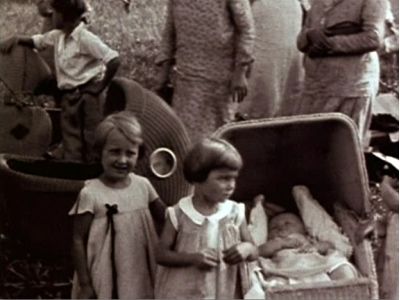The BEST episodes written by Ken Burns
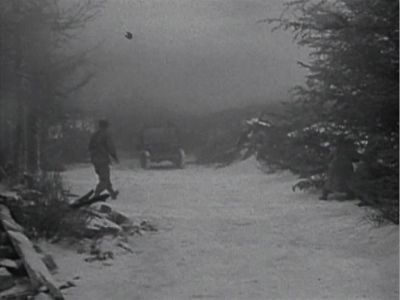
#1 - Sixth Inning: The National Pastime
Baseball - Season 1 - Episode 6
Sixth Inning, The National Pastime, covers the 1940s and includes Joe DiMaggio's celebrated hitting streak, the awe-inspiring performance of Ted Williams and what Burns calls "baseball's finest moment" — the debut of Jackie Robinson, who broke the color barrier as a member of the Brooklyn Dodgers in 1947.
Watch Now:AmazonApple TV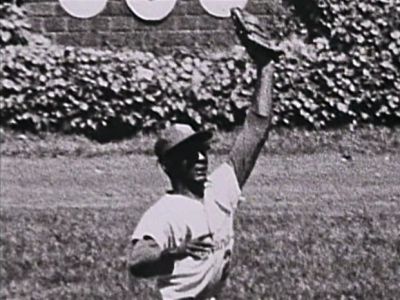
#2 - Ninth Inning: Home
Baseball - Season 1 - Episode 9
Ninth Inning, Home, looks at baseball from the 1970s to the present, including the establishment of the free agent system, the rise in player salaries, the continued expansion, the dilution of talent, the ongoing battles between labor and management and the scandals. The documentary ends with an ironic claim that baseball, and indirectly the World Series, could never be stopped. The 1994 World Series, the series to be played the year the film was aired, was canceled due to a players' strike.
Watch Now:AmazonApple TV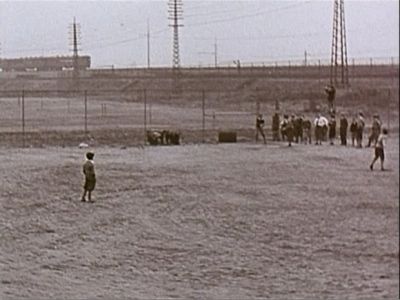
#3 - Fifth Inning: Shadow Ball
Baseball - Season 1 - Episode 5
Fifth Inning, Shadow Ball, tells the story of the Negro Leagues in the 1930s. The title refers to a common pre-game feature in which the players staged a mock game with an imaginary ball. Though unintended, the pantomime was an apt metaphor for the exclusion of blacks from major league play at that time.
Watch Now:Amazon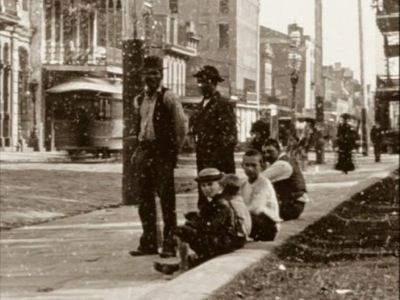
#4 - The Gift (1917–1924)
Jazz - Season 1 - Episode 2
How can one explain the genius of a Louis Armstrong or Duke Ellington? Blessed with skill and talent far exceeding their peers, one can only define what they possess as a gift from the gods. These early portraits are imperative, because both figures have been so canonized that it is easy to forget the significance of their gifts.
Watch Now:Amazon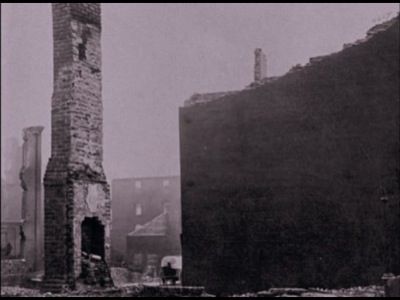
#5 - War is All Hell (1865)
The Civil War - Season 1 - Episode 8
The episode begins with William Tecumseh Sherman's brilliant march to the sea, which brings the war to the heart of Georgia and the Carolinas and spells the end of the Confederacy. In March, following Lincoln's second inauguration, first Petersburg and then Richmond finally fall to Grant's army. Lee's tattered Army of Northern Virginia flees westward towards a tiny crossroads town called Appomattox Court House. There the dramatic and deeply moving surrender of Lee to Grant takes place. The episode ends in Washington where John Wilkes Booth begins to dream of vengeance for the South.
Watch Now:AmazonApple TV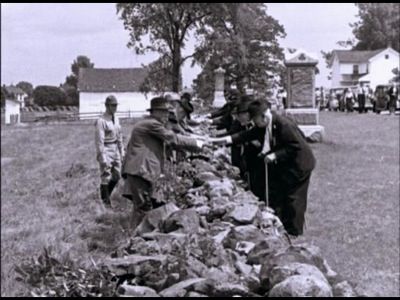
#6 - The Better Angels of Our Nature (1865)
The Civil War - Season 1 - Episode 9
This extraordinary final episode of The Civil War begins in the bittersweet aftermath of Lee's surrender and then goes on to narrate the horrendous events of five days later when, on April 14, Lincoln is assassinated. After chronicling Lincoln's poignant funeral, the series recounts the final days of the war, the capture of John Wilkes Booth and the fates of the Civil War's major protagonists. The episode then considers the consequences and meaning of a war that transformed the country from a collection of states to the nation we are today.
Watch Now:Amazon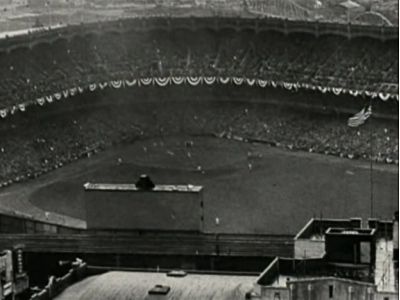
#7 - Seventh Inning: The Capital of Baseball
Baseball - Season 1 - Episode 7
Seventh Inning, The Capitol of Baseball, takes viewers through the 1950s when New York City had three successful baseball teams and dominated the World Series. By the end of the decade, the Giants and Dodgers had left New York, a signal that the old game was changed forever.
Watch Now:AmazonApple TV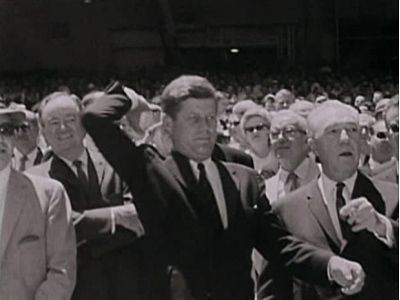
#8 - Eighth Inning: A Whole New Ballgame
Baseball - Season 1 - Episode 8
Eighth Inning, A Whole New Ball Game, moves the field to the 1960s. This episode traces the emergence of television, the expansion to new cities and the building of anonymous multipurpose stadiums that robbed the game of its intimacy and some of its urban following.
Watch Now:AmazonApple TV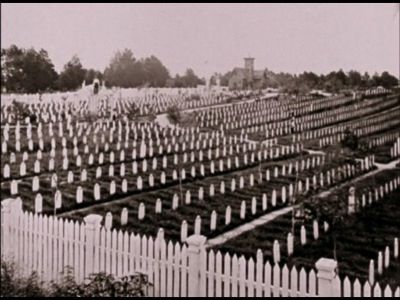
#9 - Valley of the Shadow of Death (1864)
The Civil War - Season 1 - Episode 6
Episode six begins with a biographical comparison of Ulysses S. Grant and Robert E. Lee and then chronicles the extraordinary series of battles that pitted the two generals against each other from the wilderness to Petersburg in Virginia. In 30 days, the two armies lose more men than both sides have lost in three years of war. With Grant and Lee finally deadlocked at Petersburg, we visit the ghastly hospitals north and south and follow General Sherman's Atlanta campaign through the mountains of north Georgia. As the horrendous casualty lists increase, Lincoln's chances for re-election begin to dim, and with them the possibility of Union victory.
Watch Now:AmazonApple TV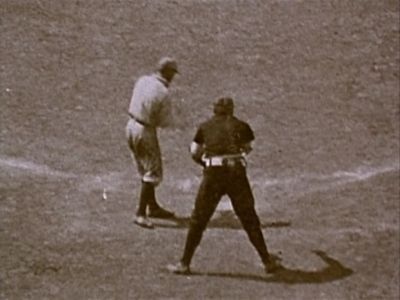
#11 - Third Inning: The Faith of Fifty Million People
Baseball - Season 1 - Episode 3
Third Inning, The Faith of Fifty Million People, examines the century's second decade, which was dominated by the Black Sox scandal. George Herman "Babe" Ruth makes his first major league appearance (as a member of the Boston Red Sox) and a wave of immigration helps fill the stands with new fans, eager to "become American" by learning America's game.
Watch Now:Amazon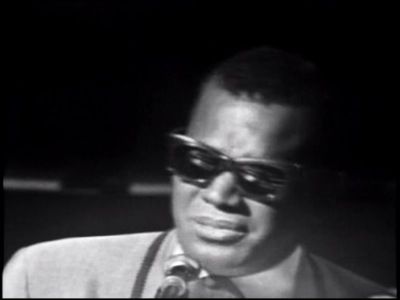
#12 - The Adventure (1956–1960)
Jazz - Season 1 - Episode 9
Critics who had believed that Charlie Parker was "too much" musically, could not have welcomed the arrival of Ornette Coleman. Coleman and John Coltrane would edge jazz toward even more freedom, eventually dropping all traditional structures. While these artists alienated many listeners, Miles Davis would record the most popular jazz album of all time, Kind of Blue.
Watch Now:Amazon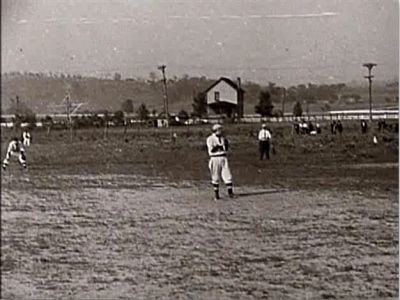
#13 - Second Inning: Something Like a War
Baseball - Season 1 - Episode 2
Second Inning, Something Like a War, takes viewers through 1910 and introduces some of the game's most celebrated and colorful characters, including Ty Cobb, Honus Wagner, Christy Mathewson and Walter Johnson., and includes the formation of the American League and its integration with the National League, culminating in the establishment of the World Series.
Watch Now:AmazonApple TV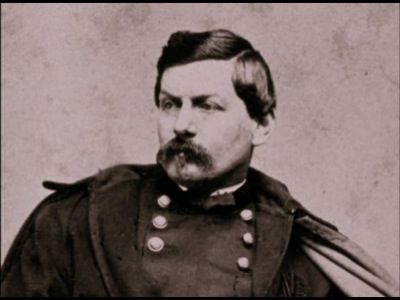
#14 - Forever Free (1862)
The Civil War - Season 1 - Episode 3
This episode charts the dramatic events that led to Lincoln's decision to set the slaves free. Convinced by July 1862 that emancipation was now morally and militarily crucial to the future of the Union, Lincoln must wait for a victory to issue his proclamation. But as the year wears on there are no Union victories to be had, thanks to the brilliance of Stonewall Jackson and Robert E. Lee. The episode comes to a climax in September 1862 with Lee's invasion of Maryland. On the banks of Antietam Creek, the bloodiest day of the war takes place, followed shortly by the brightest: the emancipation of the slaves.
Watch Now:AmazonApple TV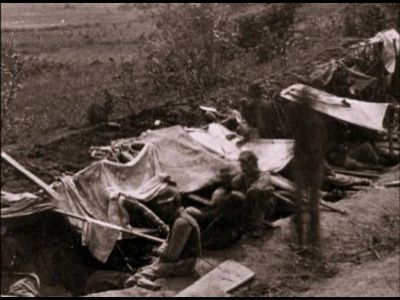
#15 - Most Hallowed Ground (1864)
The Civil War - Season 1 - Episode 7
The episode begins with the presidential election of 1864 that sets Abraham Lincoln against his old commanding general, George McClellan. The stakes are nothing less than the survival of the Union itself: with Grant and Sherman stalled at Petersburg and Atlanta, opinion in the North has turned strongly against the war. But 11th-hour victories at Mobile Bay, Atlanta, and the Shenandoah Valley tilt the election to Lincoln and the Confederacy's last hope for independence dies. In an ironic twist, poignantly typical of the Civil War, Lee's Arlington mansion is turned into a Union military hospital and the estate becomes Arlington National Cemetery, the Union's most hallowed ground.
Watch Now:AmazonApple TV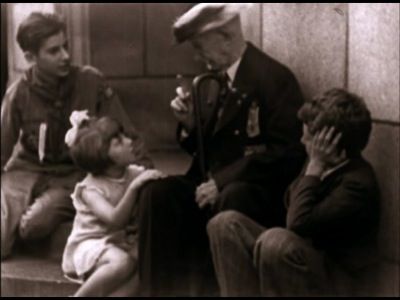
#16 - Simply Murder (1863)
The Civil War - Season 1 - Episode 4
The nightmarish Union disaster at Fredericksburg comes to two climaxes that spring: at Chancellorsville in May, where Lee wins his most brilliant victory but loses Stonewall Jackson; and at Vicksburg, where Grant's attempts to take the city by siege are stopped. During the episode we learn of fierce Northern opposition to Lincoln's Emancipation Proclamation, the miseries of regimental life and the increasing desperation of the Confederate homefront. As the episode ends, Lee decides to invade the North again to draw Grant's forces away from Vicksburg.
Watch Now:AmazonApple TV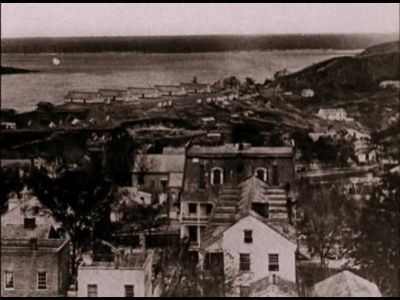
#17 - The Universe of Battle (1863)
The Civil War - Season 1 - Episode 5
This episode opens with a dramatic account of the turning point of war: the Battle of Gettysburg, the greatest ever fought in the Western Hemisphere. For three days 150,000 men will fight to the death in the Pennsylvania countryside, culminating in Pickett's legendary charge. This extended episode then goes on to chronicle the fall of Vicksburg, the New York draft riots, the first use of black troops, and the western battles at Chickamauga, Georgia and Chattanooga, Tennessee. The episode closes with the dedication of a new Union cemetery at Gettysburg in November, where Abraham Lincoln struggles to put into words what is happening to his people.
Watch Now:AmazonApple TV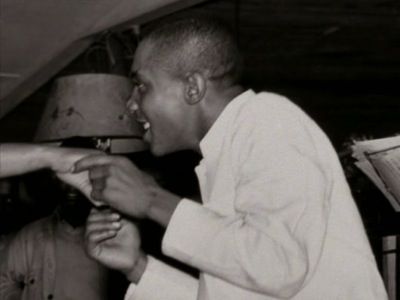
#18 - Dedicated to Chaos (1940–1945)
Jazz - Season 1 - Episode 7
"Dedicated to Chaos" finds jazz musicians teetering on the brink of the modern era, fighting against the straightjacket of clichéd, big band arrangements. The revolution started at Minton's Playhouse, a rundown club where musicians like Thelonious Monk, Dizzy Gillespie, and Charlie Christian jammed on Monday nights. When they hooked up with a young saxophone player from Kansas City named Charlie Parker, the bop insurgency had arrived.
Watch Now:Amazon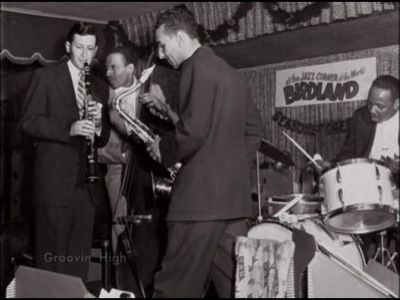
#19 - Risk (1945–1955)
Jazz - Season 1 - Episode 8
The bop revolution's influence would spread to other musicians, but unlike swing, it would never become a popular music. The rapid-fire solos and complicated chord structures made bop a musician's music, unfit for dancing. Indeed, Charlie Parker and Dizzy Gillespie’s music even alienated established musicians like Armstrong. "Risk" provides an in-depth biography of the bright, brief life of Parker, and includes interviews with his former wife.
Watch Now:Amazon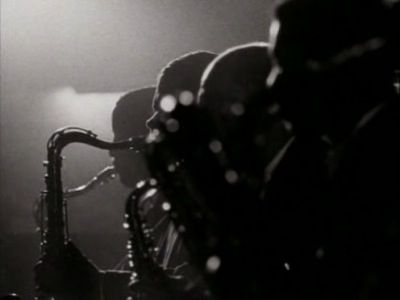
#20 - A Masterpiece by Midnight (1960 to the Present)
Jazz - Season 1 - Episode 10
Obviously Ken Burns knows that he can't fit the last thirty-nine years of jazz history onto two hours of video tape, so from the outset, that shouldn't be expected. There's an excellent biography of John Coltrane, and footage of Miles Davis' wonderful mid-’60s quintet. There is also a nice, small section on the magnificent Charles Mingus.
Watch Now:Amazon
#21 - Pride of our Nation
The War - Season 1 - Episode 4
By June 1944, there are signs on both sides of the world that the tide of the war is turning. On June 6, 1944 — D-Day — in the European Theater, a million and a half Allied troops embark on one of the greatest invasions in history: the invasion of France. Among them are Dwain Luce of Mobile, who drops behind enemy lines in a glider; Quentin Aanenson of Luverne, who flies his first combat mission over the Normandy coast; and Joseph Vaghi of Waterbury, who manages to survive the disastrous landing on Omaha Beach, where German resistance nearly decimates the American forces
Watch Now:Amazon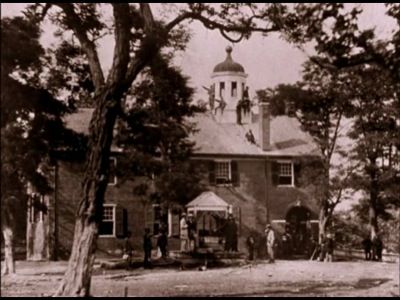
#22 - The Cause (1861)
The Civil War - Season 1 - Episode 1
Beginning with a searing indictment of slavery, this first episode dramatically evokes the causes of the war, from the Cotton Kingdom of the South to the northern abolitionists who opposed it. Here are the burning questions of Union and States' rights, John Brown at Harper's Ferry, the election of Abraham Lincoln in 1860, the firing on Fort Sumter and the jubilant rush to arms on both sides. Along the way the series' major figures are introduced: Abraham Lincoln, Frederick Douglass, Robert E. Lee, Ulysses S. Grant and a host of lesser-known but equally vivid characters. The episode comes to a climax with the disastrous Union defeat at Manassas, Virginia, where both sides now learn it is to be a very long war.
Watch Now:AmazonApple TV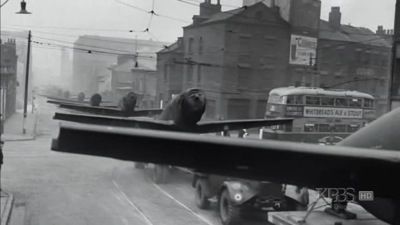
#23 - When Things Get Tough
The War - Season 1 - Episode 2
By January 1943, Americans have been at war for more than a year. The Germans, with their vast war machine, still occupy most of Western Europe, and the Allies have not yet been able to agree on a plan or a timetable to dislodge them. For the time being, they will have to be content to nip at the edges of Hitler’s enormous domain. American troops, including Charles Mann of Luverne, are now ashore in North Africa, ready to test themselves for the first time against the German and Italian armies.
Watch Now:AmazonApple TV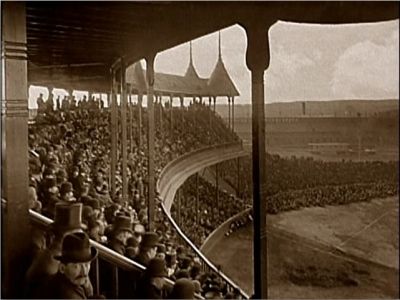
#24 - First Inning: Our Game
Baseball - Season 1 - Episode 1
First Inning, Our Game, looks at the origins of baseball in the 1840s and takes the story up to 1900. Burns refutes the myth that Abner Doubleday invented baseball in Cooperstown and traces its roots instead to the earliest days of the nation — there are records of a game called "Base" played at Valley Forge..
Watch Now:AmazonApple TV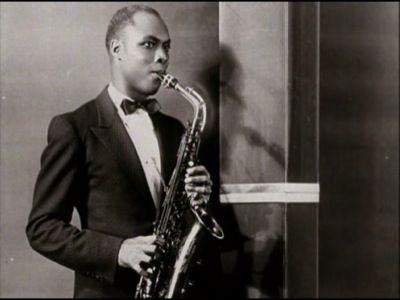
#25 - Swing: The Velocity of Celebration (1937–1939)
Jazz - Season 1 - Episode 6
Swing would be reacquainted with its blues roots by way of Kansas City, when Count Basie and the Barons of Rhythm brought their hot sound to the Big Apple. Basie would also give Billie Holiday her first break, offering her a chance to travel, perform, drink, and gamble with the rest of the band. Another young singer named Ella Fitzgerald would get her start in Chick Webb's band at the Savoy Ballroom, and then be named top female vocalist—over Billy Holiday—by Down Beat in 1937.
Watch Now:Amazon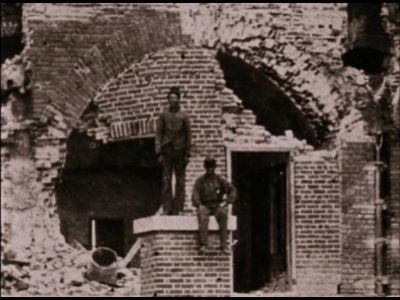
#26 - A Very Bloody Affair (1862)
The Civil War - Season 1 - Episode 2
1862 saw the birth of modern warfare and the transformation of Lincoln's war to preserve the Union into a war to emancipate the slaves. Episode Two begins with the political infighting that threatened to swamp Lincoln's administration and then follows Union General George McClellan's ill-fated campaign on the Virginia Peninsula, where his huge army meets a smaller but infinitely more resourceful Confederate force. During this episode we witness the battle of ironclad ships, partake of camp life, and watch slavery begin to crumble. We meet Ulysses S. Grant, whose exploits come to a bloody climax at the Battle of Shiloh in Tennessee. The episode ends with rumors of Europe's readiness to recognize the Confederacy.
Watch Now:AmazonApple TV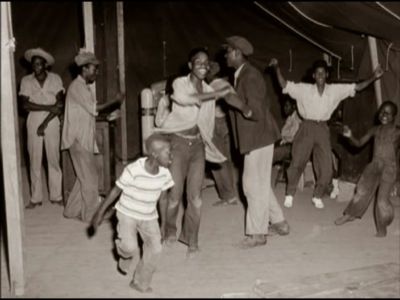
#27 - The True Welcome (1929–1934)
Jazz - Season 1 - Episode 4
"The True Welcome" continues many of the stories begun in Episode 3, following several troubling years for Louis Armstrong (who was arrested for marijuana possession), Duke Ellington’s growth as a composer, and Benny Goodman discovering gold in Fletcher Henderson’s arrangements. "The True Welcome" also has a nice section on rich kid John Hammond, Sr. who would become one of the biggest promoters of jazz.
Watch Now:Amazon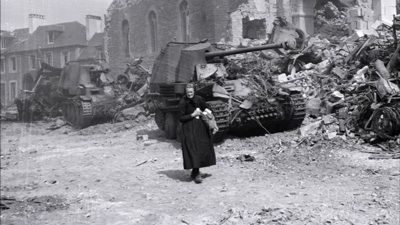
#28 - A Necessary War
The War - Season 1 - Episode 1
December 1941-December 1942 After a haunting overview of the Second World War, an epoch of killing that engulfed the world from 1939 to 1945 and cost at least 50 million lives, the inhabitants of four towns — Mobile, Alabama; Sacramento, California; Waterbury, Connecticut; and Luverne, Minnesota — recall their communities on the eve of the conflict. For them, and for most Americans finally beginning to recover from the Great Depression, the events overseas seem impossibly far away. Their tranquil lives are shattered by the shock of the Japanese attack on Pearl Harbor, and America is thrust into the greatest cataclysm in history. Along with millions of other young men, Sid Phillips and Willie Rushton of Mobile, Ray Leopold of Waterbury and Walter Thompson and Burnett Miller of Sacramento enter the armed forces and begin to train for war. In the Philippines, two Americans thousands of miles from home, Corporal Glenn Frazier and Sascha Weinzheimer (who was 8 years old in 1941), are caught up in the Japanese onslaught there, as American and Filipino forces retreat onto Bataan while thousands of civilians are rounded up and imprisoned in Manila. Meanwhile, back home, 110,000 Japanese Americans all along the West Coast, including some 7,000 from Sacramento and the surrounding valley, are forced by the government to abandon their homes and businesses and are relocated to inland internment camps. On the East Coast, German U-boats menace Allied shipping just offshore, sending hundreds of ships and millions of tons of materiel to the bottom of the sea. The United States seems utterly unprepared for this kind of total war. Witnessing all of this is Katharine Phillips of Mobile, who remembers sightings of U-boats just outside Mobile Bay, and Al McIntosh, the editor of the Rock County Star Herald in Luverne, who chronicles the travails of every family in town. In June 1942, the Navy manages an improbable victory over the Japanese at the Battle of Midway. In August,
Watch Now:AmazonApple TV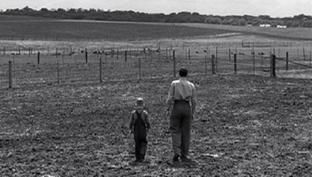
#29 - A World Without War
The War - Season 1 - Episode 7
In the spring of 1945, although the numbers of dead and wounded have more than doubled since D-Day, the people of Mobile, Sacramento, Waterbury and Luverne understand all too well that there will be more bad news from the battlefield before the war can end. That March, when Americans go to the movies, President Franklin Roosevelt warns them in a news reel that, although the Nazis are on the verge of collapse, the final battle with Japan could stretch on for A World Without War was between March 1944 - December 1945.
Watch Now:Amazon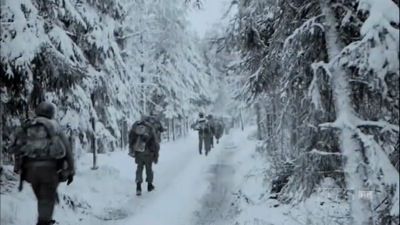
#30 - A Deadly Calling
The War - Season 1 - Episode 3
In fall 1943, after almost two years of war, the American public is able to see for the first time the terrible toll the war is taking on its troops when Life publishes a photograph of the bodies of three GIs killed in action at Buna.
Watch Now:AmazonApple TV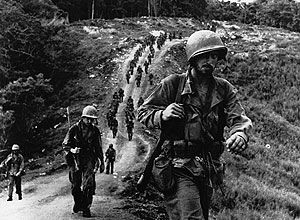
#31 - The Ghost Front
The War - Season 1 - Episode 6
By December 1944, Americans have become weary of the war their young men have been fighting for three long years; the stream of newspaper headlines telling of new losses and telegrams bearing bad news from the War Department seem endless and unendurable. The Ghost Front was fought between December 1944 - March 1945.
Watch Now:Amazon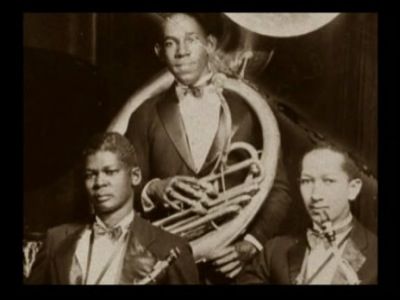
#32 - Our Language (1924–1929)
Jazz - Season 1 - Episode 3
Colorful characters like the tragic Bix Beiderbecke, powerhouse Bessie Smith, and the braggart Jelly Roll Morton, make the study of jazz fascinating. Perhaps most touching in this episode is the extended portrait of the troubled, white cornet player, Bix Beiderbecke, whose family disapproved of his chosen profession, and who would never be allowed to record with greats like Louis Armstrong due to segregation in the music business.
Watch Now:Amazon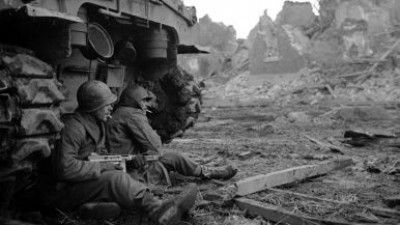
#33 - FUBAR
The War - Season 1 - Episode 5
By September 1944, in Europe at least, the Allies seem to be moving steadily toward victory. “Militarily,” General Dwight Eisenhower’s chief of staff tells the press, “this war is over.” But in the coming months, on both sides of the world, a generation of young men will learn a lesson as old as war itself — that generals make plans, plans go wrong and soldiers die. The Ghost Front was fought between September 1944 - December 1944.
Watch Now:Amazon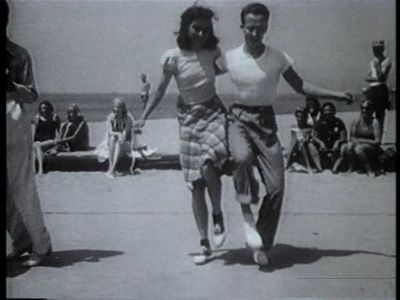
#34 - Swing: Pure Pleasure (1935–1937)
Jazz - Season 1 - Episode 5
1935 was the year that swing became the most popular music in the country and that the king of swing, Benny Goodman, became a matinee idol. Americans, stifled by the Depression, seemed determined to dance their troubles away. "Swing: Pure Pleasure" follows the continuing careers of Goodman, Artie Shaw, and Armstrong, and the discovery of Billy Holiday.
Watch Now:Amazon